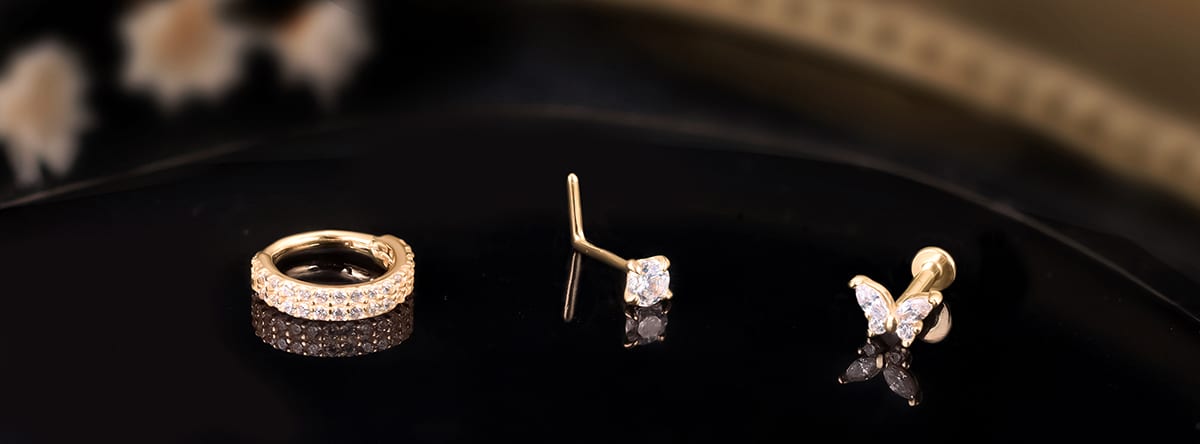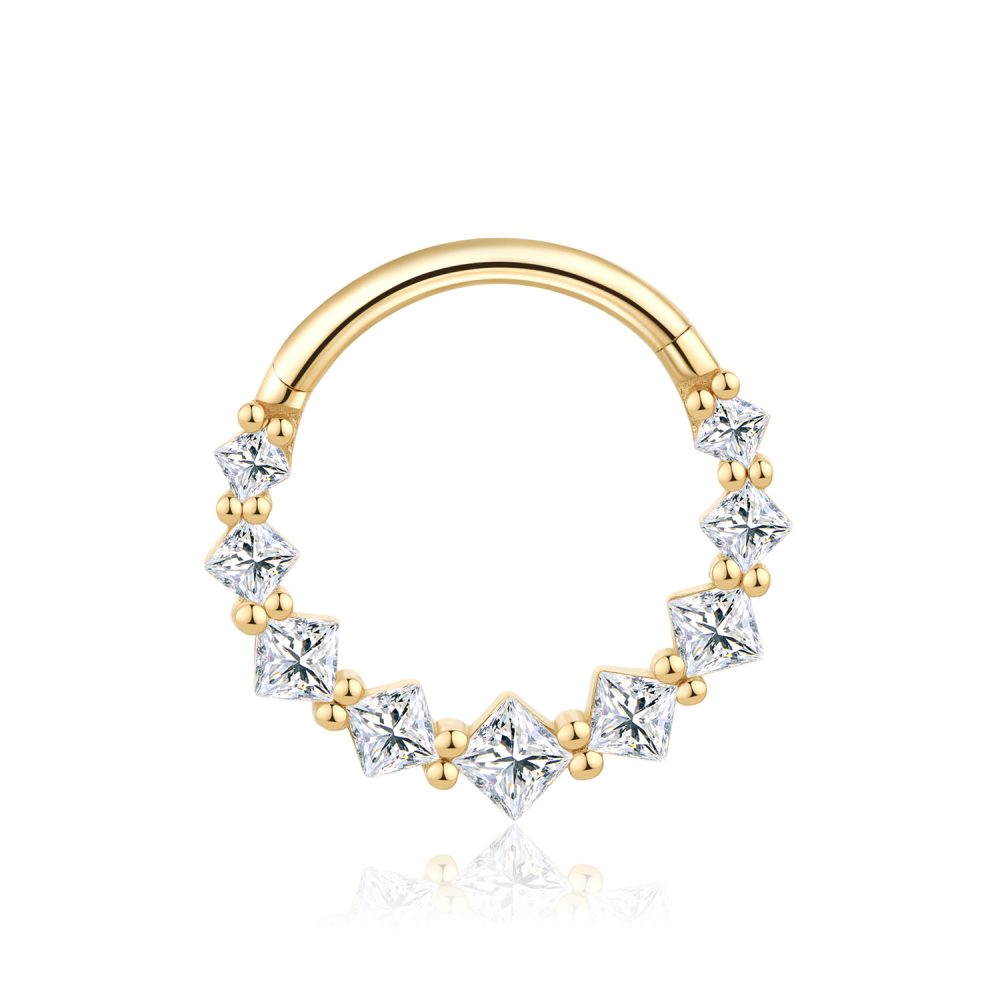Email:wholesale@goldpiercingfactory.com WhatsApp:+14086905740


Gold piercing jewelry, as part of the cultural heritage of mankind, attracts the world’s attention with its unique charm and historical value. The practice of nose and ear piercing is not only a form of physical adornment, but also an expression of cultural, religious and social concepts.
The origins of piercing can be traced back to ancient times, when people started piercing their bodies probably for practical purposes, such as hanging objects or identification. As society evolved, piercing was gradually given more artistic value and special significance, and became a symbol of personal identity, status and aesthetic concept.
In ancient civilizations, piercing jewelry received a lot of attention and got some development. In Ancient Egyptian civilization, piercing jewelry became a symbol of the status and position of nobles and royalty, not only possessing exquisite craftsmanship, but also symbolizing unique significance. In ancient Indian civilization, piercing was closely linked to religious beliefs, and people demonstrated their faith and devotion through piercing. In the ancient American civilization, pierced jewelry also had an important position, they were not only decorative, but also carries a wealth of cultural significance and historical information.

Piercing jewelry was widely used in daily life and religious ceremonies in ancient Egyptian civilization. Men usually wore ear plugs and gold earrings, while women pierced their noses and wore gold nose rings. These jewelry were not only decorative but also a symbol of the power and life and resurrection of Ra, the sun god. Moreover, interlocking jewelry was also one of the symbols used by the ancient Egyptians to express love and marriage.
In ancient Indian civilization, the practice of spanking was closely associated with religious beliefs. Religious beliefs such as Hinduism and Buddhism greatly influenced kissing, many believers expressed their faith and devotion through kissing In Indian culture, nose piercing is seen as a symbol of female beauty and sexuality. Women often pierce their noses on important occasions such as bar mitzvahs or weddings and wear beautiful gold nose rings as accessories. These nose rings not only symbolize a woman’s beauty and beauty, but also symbolize their responsibilities towards their family and society.
The practice of piercing also played an important role in ancient American civilizations. In the Mayan and Aztec cultures, people pierced their noses, ears, and lips and wore jewelry made of various materials such as gold, jade, coral and so on. These jewelry were not only aesthetic, but they came with a wealth of cultural significance and historical context. The Mayans and Aztecs believed that kites could convey extraordinary individual courage and beauty, as well as invoke blessings and protection from the gods. Thus, boxing has special social significance and cultural significance in ancient American civilization.

With the change of time and the development of society, the practice of piercing has also undergone continuous evolution and development. In modern society, piercing is no longer a common custom but a personalized choice. People can choose whether or not to get pierced and wear jewelry of various materials and styles according to their own preferences and styles. The purpose of piercing has also changed from showing identity and status to pursuing fashion and taste. Meanwhile, with the global cultural exchanges and integration, pierced jewelry has gradually become an international fashion element, providing people with more opportunities and ways to show their unique charm.
In modern society, pierced jewelry still has a certain market and influence. They are not only a kind of decoration but also a kind of personalized and fashionable expression. Through continuous innovation and design, traditional elements and modern aesthetics are combined to produce pierced jewelry products that meet the needs of modern consumers. At the same time, pierced jewelry also carries a certain cultural significance and historical value as one of the bridges between the past and the present.
Although piercing jewelry has gained some market and influence in the modern world, they also face some challenges and controversies. On the one hand, piercing may affect your health and you may encounter problems such as infections and allergies. Therefore, you need to fully understand the risks and precautions involved and choose a professional piercing organization before getting a piercing. On the other hand, with today’s fashion trends changing so rapidly and social attitudes shifting, the practice of piercing may gradually lose its original charm and influence.
In summary, piercing as an archaic and distinct form of body embellishment has a unique provenance and trajectory within various cultures. Body piercing has experienced ongoing changes throughout history. Although it enjoys substantial popularity, this practice also garners numerous queries in today’s society. Regardless, as societal progress persists accompanied by shifts in fashion trends, the tradition of body piercing will undoubtedly continue on its path of evolution bringing about heightened aesthetical pleasure and unexpected novelties.